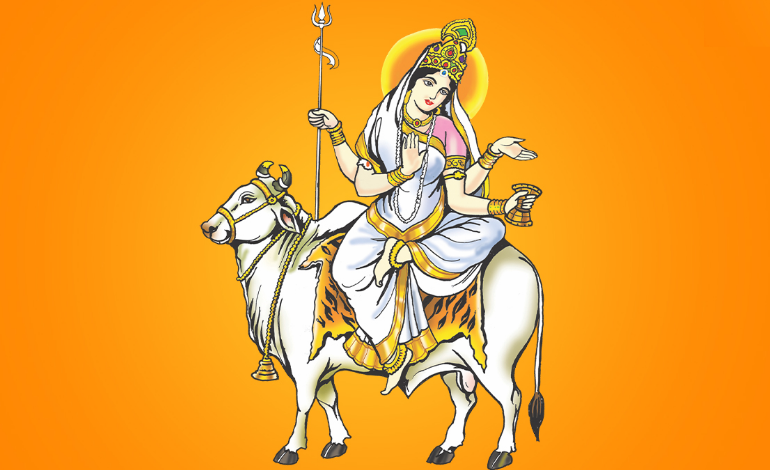
On the eighth day of Navratri today, devotees all over the country will offer their prayers to the eighth incarnation of Maa Durga, Goddess Mahagauri.
As per Hindu mythology, the eighth day of Navratri is dedicated to Goddess Mahagauri. She attained "Gaur Varna" by rigorous penance. Her name means the one who is extremely bright. The goddess mounts on the ox and appears in many forms.
The famous Jhandewalan Temple in Delhi conducted the early morning aarti on the occasion of Maha Ashtami. Devotees also flocked to Mumbai's Mumba Devi Temple to attend the aarti and offer their prayers to the goddess.
Devotees worship the nine incarnations of Maa Durga during the nine-day long Navratri festival to seek her blessings. Each day of Navratri has a goddess manifestation linked to it. Throughout these nine days, people maintain ritualistic fasts, wear new clothing, recite shlokas dedicated to each incarnation, offer food to the needy and clean their homes.
The ask for the goddess' fervour in their prayers to live joyous, prosperous and fulfilled lives. Devotees observe fasts and offer their prayers to Goddess Durga in these nine days.
The Navratri festival signifies the triumph of good over evil, as it honours the defeat of demon Mahishasura. The tenth day of Navratri is celebrated with full fervour as Vijaya Dashmi, popularly called Dussehra.
This year, Navratri began on 26th September and will end on 5th October. North India extensively conducts Ramlila during Navratri, which exhibits the tale of triumph of Lord Ram over Ravana. Dances like Garba and Dandiya Raas are also performed. The idols of King Ravana are burned on the day of Dussehra to mark this significance.